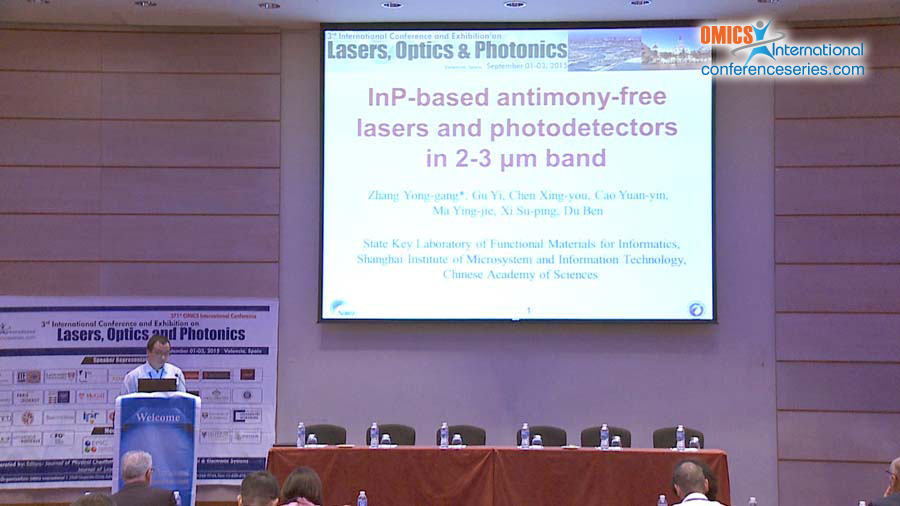
Zhang Yong-Gang
Chinese Academy of Sciences, China
Title: InP-based antimony-free lasers and photodetectors in 2-3 µm band
Biography
Biography: Zhang Yong-Gang
Abstract
In addition to antimony containing materials on GaSb substrate, the mature epitaxial growth and processing technology, as well as higher thermal conductivity, makes the antimony-free materials on InPa good candidate to cover 2-3 µm wavelength range. For InxGa1-xAs QW lasers the wavelength can be tailored to this range by increasing the indium content in the QWs, whereas significant strain is introduced and confinement become poor, so the structural design, control of epitaxial quality and suppression of dislocations become main concern. For PDs of longer wavelength, the indium content should also be increased, a quite large lattice mismatch need to be relaxed through suitable buffer. In this talk, our efforts on InP-based antimony-free QW lasers and InxGa1-xAs PDs are reviewed. For lasers, novel triangular QW was used to increase the lasing wavelength while restricting the strain. Digital alloy technology was used to form triangular QW during the MBE growth. CW lasing from 2.0 to 2.4 µm at room temperature has been achieved. To extend the emission wavelength longer, metamorphic scheme was employed on In0.8Al0.2As template to produce a virtual substrate with larger lattice constant than InP for InAs QWs. CW lasing wavelength up to 2.73 μm have been demonstrated. The cutoff wavelengths of PDs have been shifted from 1.7 µm up to 2.9 µm. The PDs using InAlAs buffer and cap layers with wider bandgap were grown and demonstrated, and p-on-n ort n-on-p PD configuration was applied. The buffer schemes and growth conditions were optimized.

